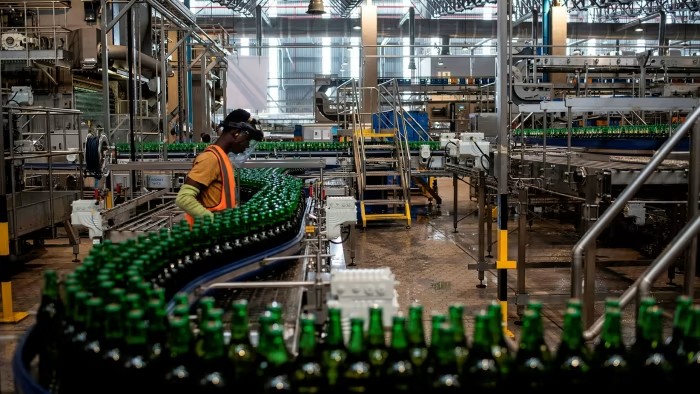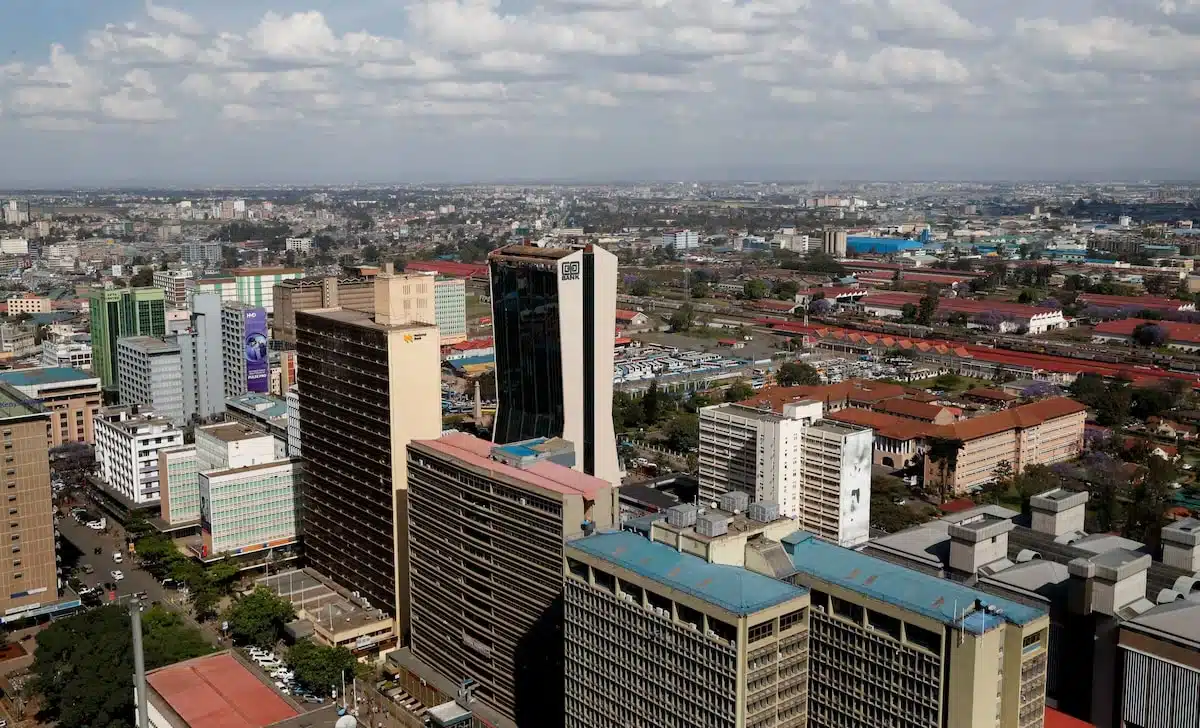Nigeria’s manufacturing sector attracted $129.9 million in the first quarter of 2025, its weakest foreign capital inflow since Q3 2022, as investors steer funds toward other industries, according to Finance in Africa’s analysis of the latest capital importation report.
The report from the National Bureau of Statistics shows that the figure marks a 32.3% quarterly drop from $192.0 million in Q4 2024 and a 32.1% year-on-year decline from $191.9 million in Q1 last year.
The downturn highlights weakening investor appetite for Nigeria’s industrial base, even as total foreign investment rose by 10.9% during the quarter. Manufacturing’s share of inflows slid to 2.3%, down from 3.8% in Q4 and 5.7% a year ago, with capital shifting toward banking and finance.
Over the last ten quarters, inflows have swung, peaking at $624.7 million in Q2 2024 before entering a downward trend. Analysts say the latest slump underscores sustained caution among investors, amid structural bottlenecks, elevated production costs, and currency volatility.
The decline raises fresh questions about Nigeria’s ability to attract the long-term manufacturing investments needed for industrialisation, job creation, and foreign exchange savings.
Why manufacturing is struggling to attract foreign capital
Aliyu Ilias, Development Economist and CEO of CSA Advisory, blamed Nigeria’s macroeconomic environment as the biggest deterrent. He noted that the high Monetary Policy Rate (MPR) of 27.50% makes borrowing prohibitively expensive for investors.
In February 2024, the Central Bank of Nigeria (CBN) raised the MPR aggressively by 875 basis points from 18.75%, and has since held it at 27.50% for three consecutive meetings.
The hawkish stance has made investment securities highly attractive to foreign portfolio investors, but has simultaneously discouraged long-term manufacturing commitments.
According to the Manufacturers Association of Nigeria (MAN), which represents over 2,500 companies, the tight monetary policy has driven average lending rates to more than 35% as of January 2025, crippling borrowing capacity. MAN warned the rate surge has pushed up production costs, weakened capacity utilisation, and increased inventories of unsold goods.
In 2024, capacity utilisation fell to 57%, while inventory of unsold finished goods surged by 87.5%. Real manufacturing investment plunged by 35.3% year-on-year in 2024, with sharp declines in land, buildings, and equipment.
“It doesn’t give room for manufacturers to borrow,” Ilias said, noting that many foreign firms prefer local credit markets when entering Nigeria.
He added that foreign exchange instability makes repatriation difficult, reducing investment appeal. “Nobody wants to invest in a double-digit inflation environment,” he said, pointing out that even established brands are struggling with weak consumer demand.
Much of the inflow into Nigeria, he observed, is now short-term portfolio investment, which “doesn’t translate to employment or capacity building.”
Structural bottlenecks, infrastructure gaps
Muda Yusuf, CEO of the Centre for the Promotion of Private Enterprise (CPPE), said the 30-month low in inflows reflects investor caution and unresolved bottlenecks. He noted that manufacturing FDI is inherently long-term, requiring confidence and policy stability.
“The exit of multinational manufacturers in recent years has sent negative signals,” Yusuf said. Persistent infrastructure gaps in power, ports, logistics, and regulation further undermine competitiveness.
He also flagged high financing costs: “The cost of funding is over 30%. How many manufacturers can survive after heavy infrastructure investment and still pay that kind of interest?”
According to the renowned economist, opportunities are limited to firms using locally sourced raw materials or producing essential goods less prone to smuggling. Without meaningful reforms, he warned, manufacturing will continue to attract only a marginal share of foreign capital.
Data from MAN show labour mobility remains high. Employees leaving manufacturing firms rose from 17,364 in 2023 to 17,949 in 2024, reflecting uncertainty, skill migration, and restructuring. Net new jobs in 2024 were 16,820, nearly flat from 16,799 in 2023.
At a recent event, Segun Ajayi-Kadir, Director-General of MAN, stressed that borrowing costs have become unsustainable, freezing expansion plans and discouraging real-sector investment. Manufacturers’ finance costs hit $879.0 billion in 2024, straining growth and raising the risk of long-term deindustrialisation.
MAN calls for urgent policy action
Following the last Monetary Policy Committee (MPC) meeting, manufacturers expressed disappointment over the decision to retain the benchmark rate for a third straight time. They are urging the CBN to cut rates at its September meeting, in collaboration with fiscal authorities, to revive the real sector.
Their proposals include:
- Implementing the Nigeria First Policy to boost local patronage.
- Providing incentives for backward integration and local sourcing of raw materials.
- Tackling insecurity in farming communities to support food production and logistics.
- Introducing measures to improve income distribution, raise household welfare, and stimulate demand.
Ajayi-Kadir warned that without urgent reforms, “manufacturers will continue to retreat, with implications for jobs, output, and national development.”










